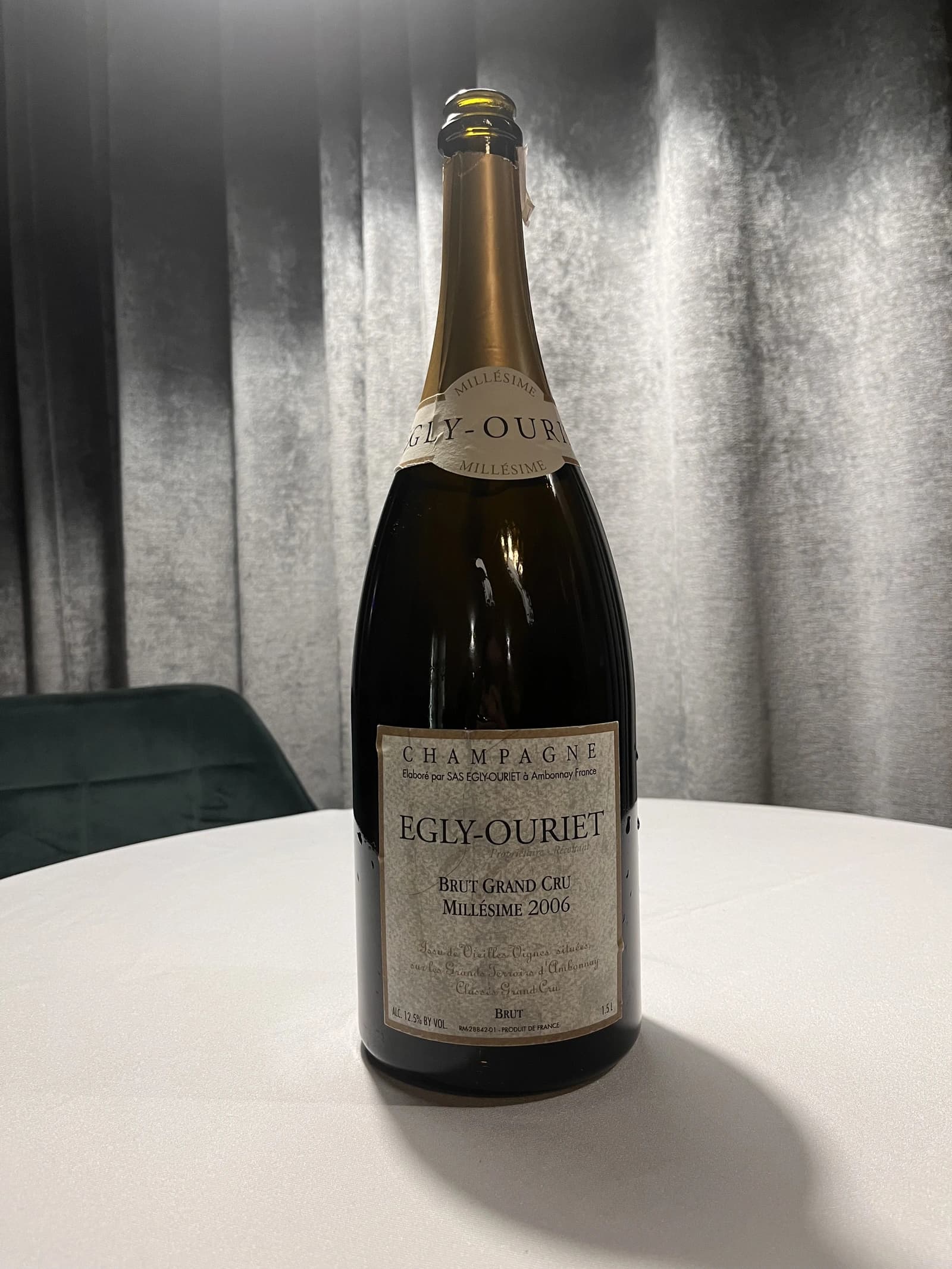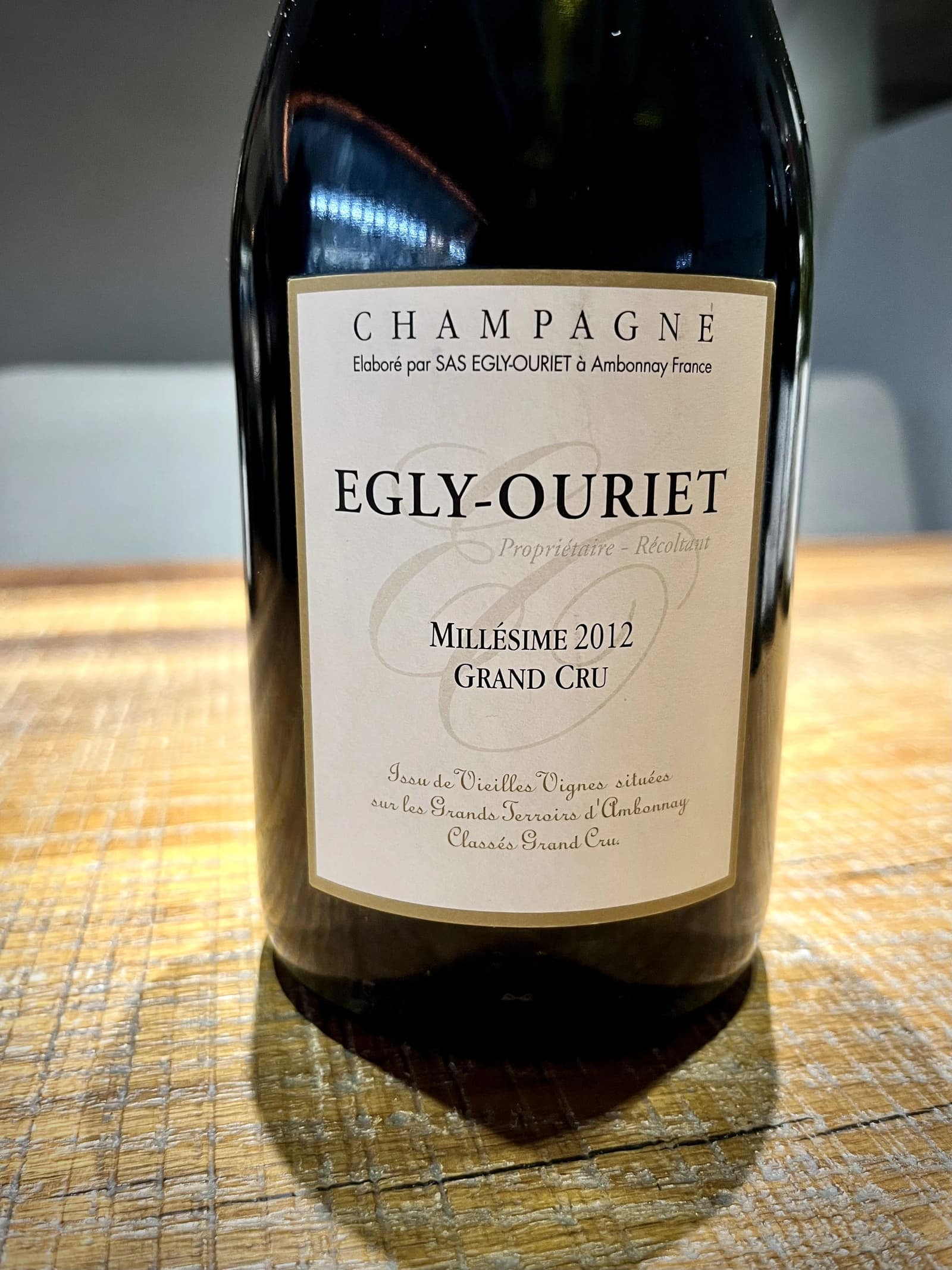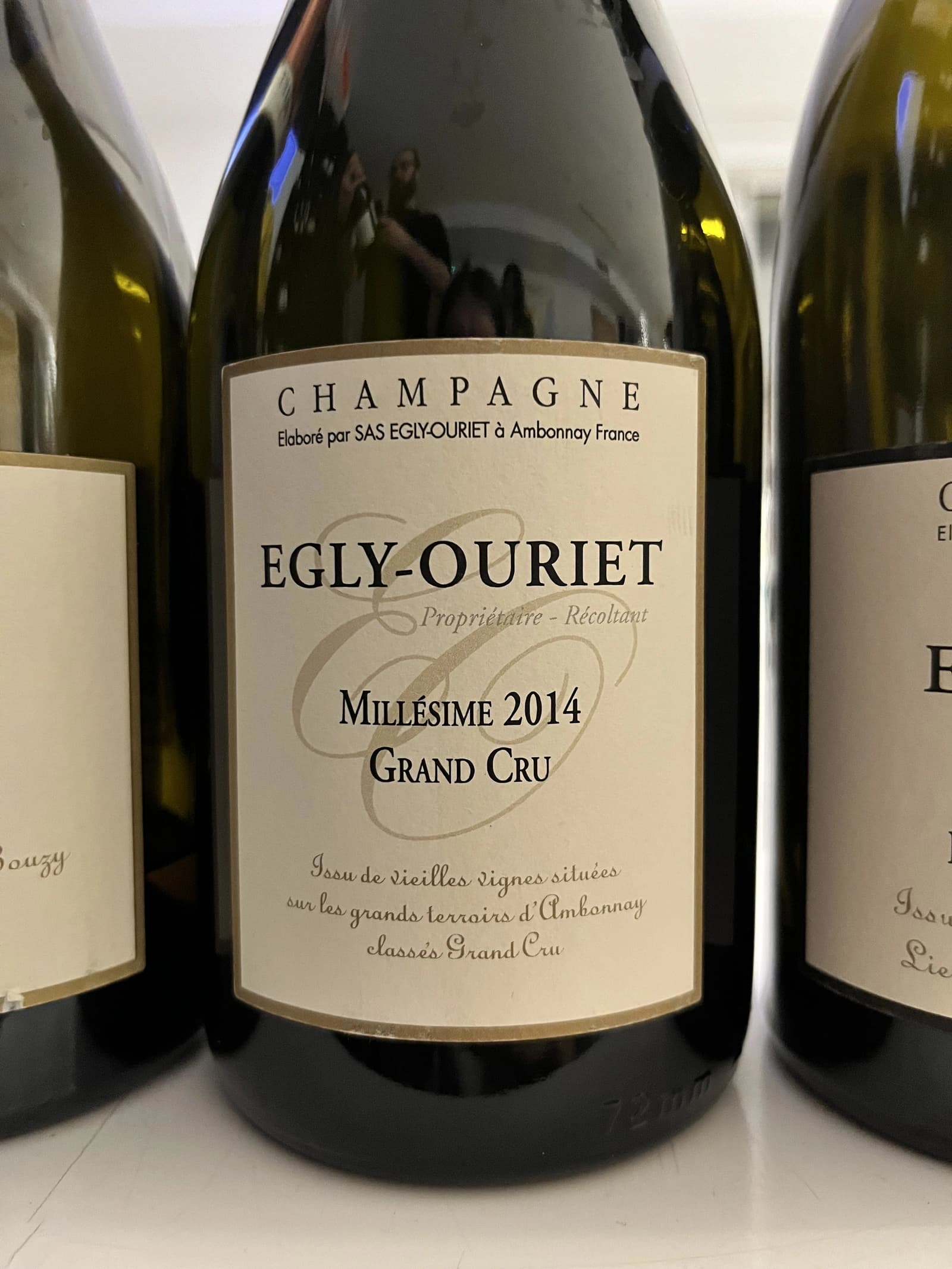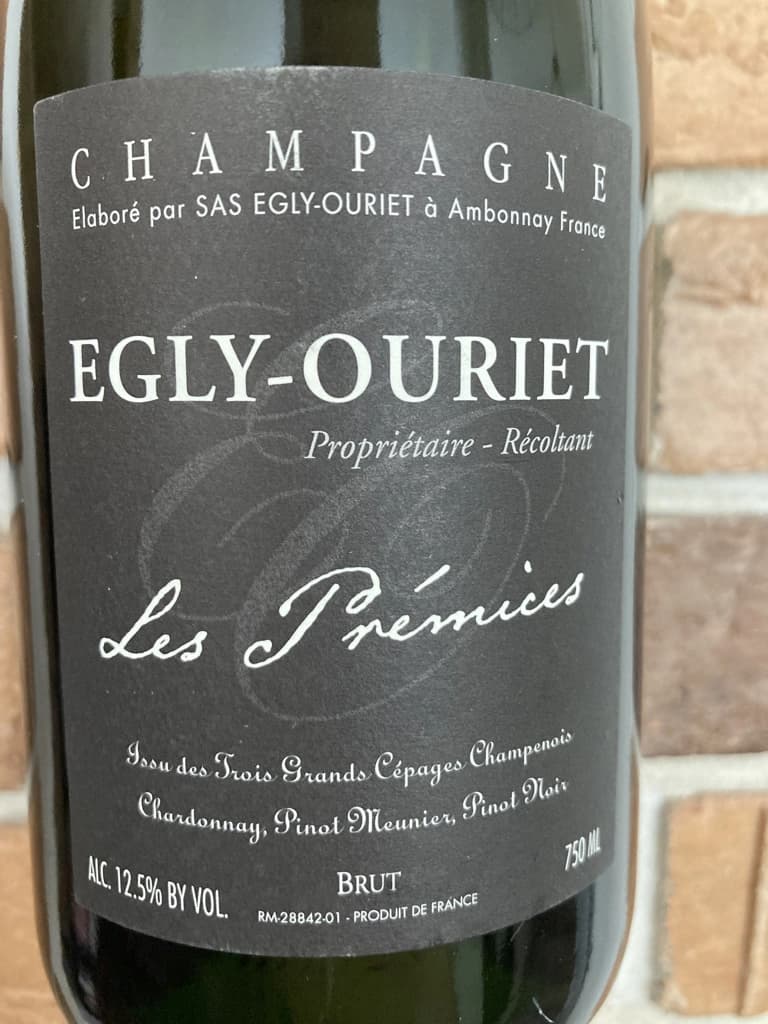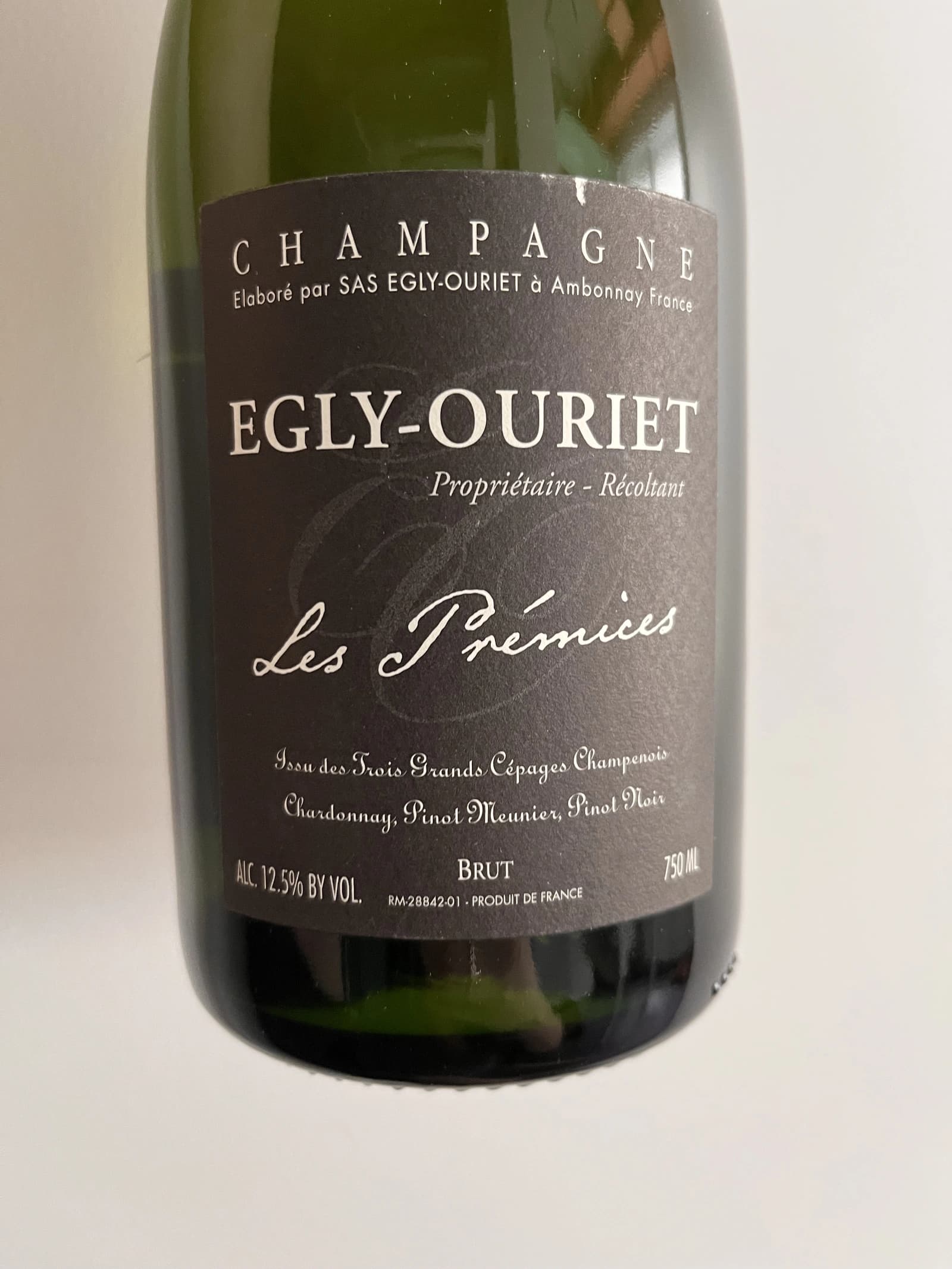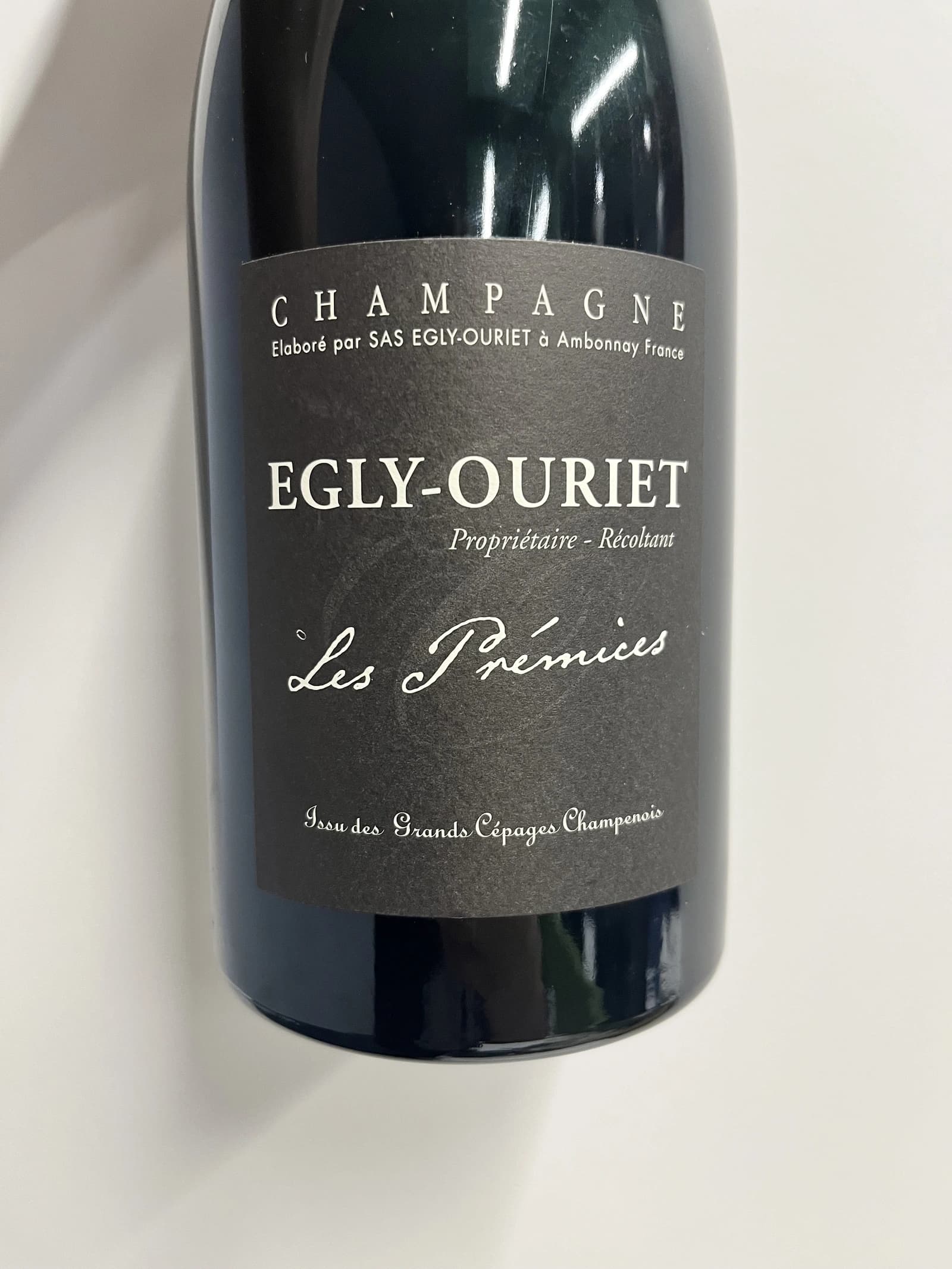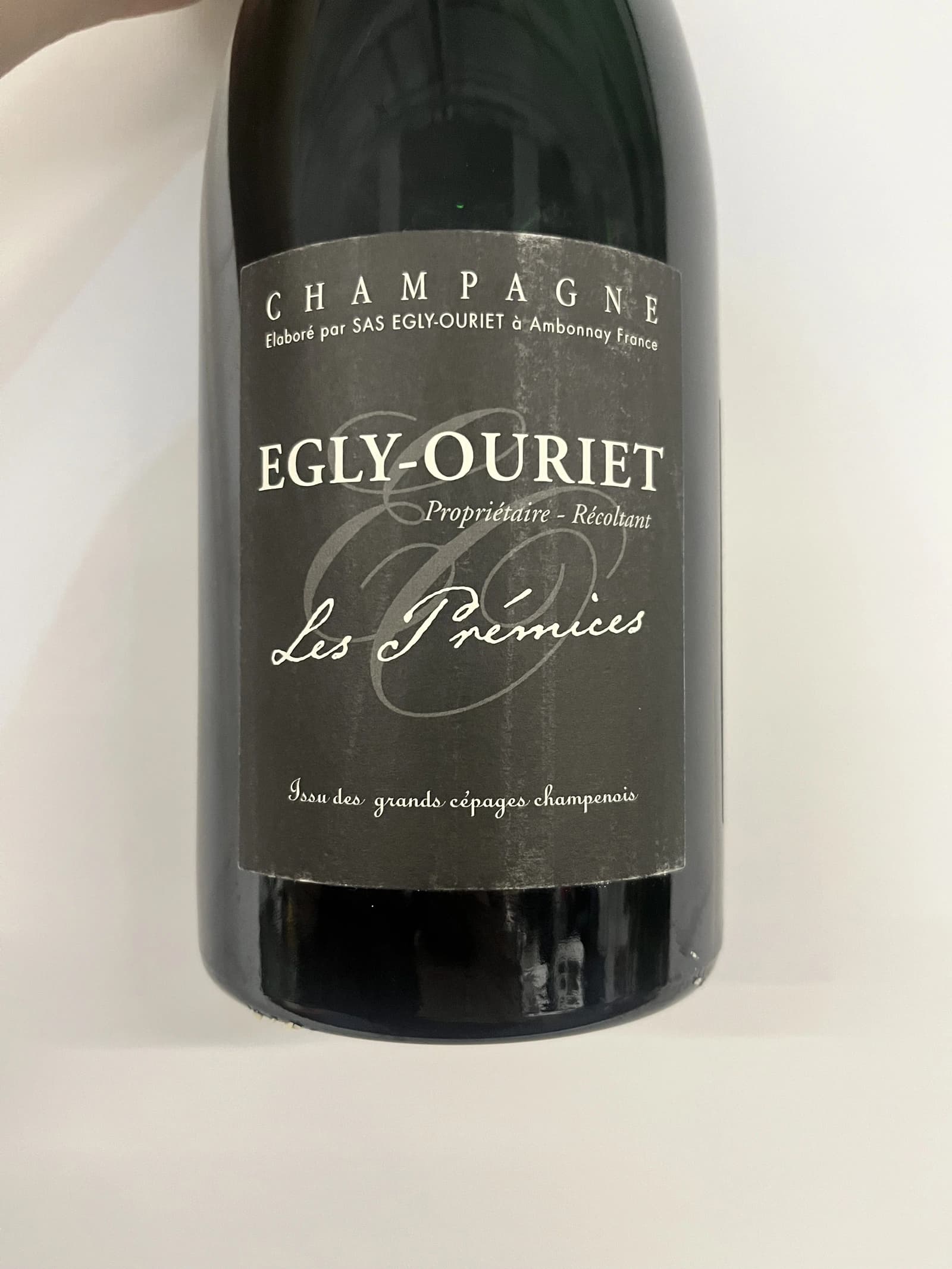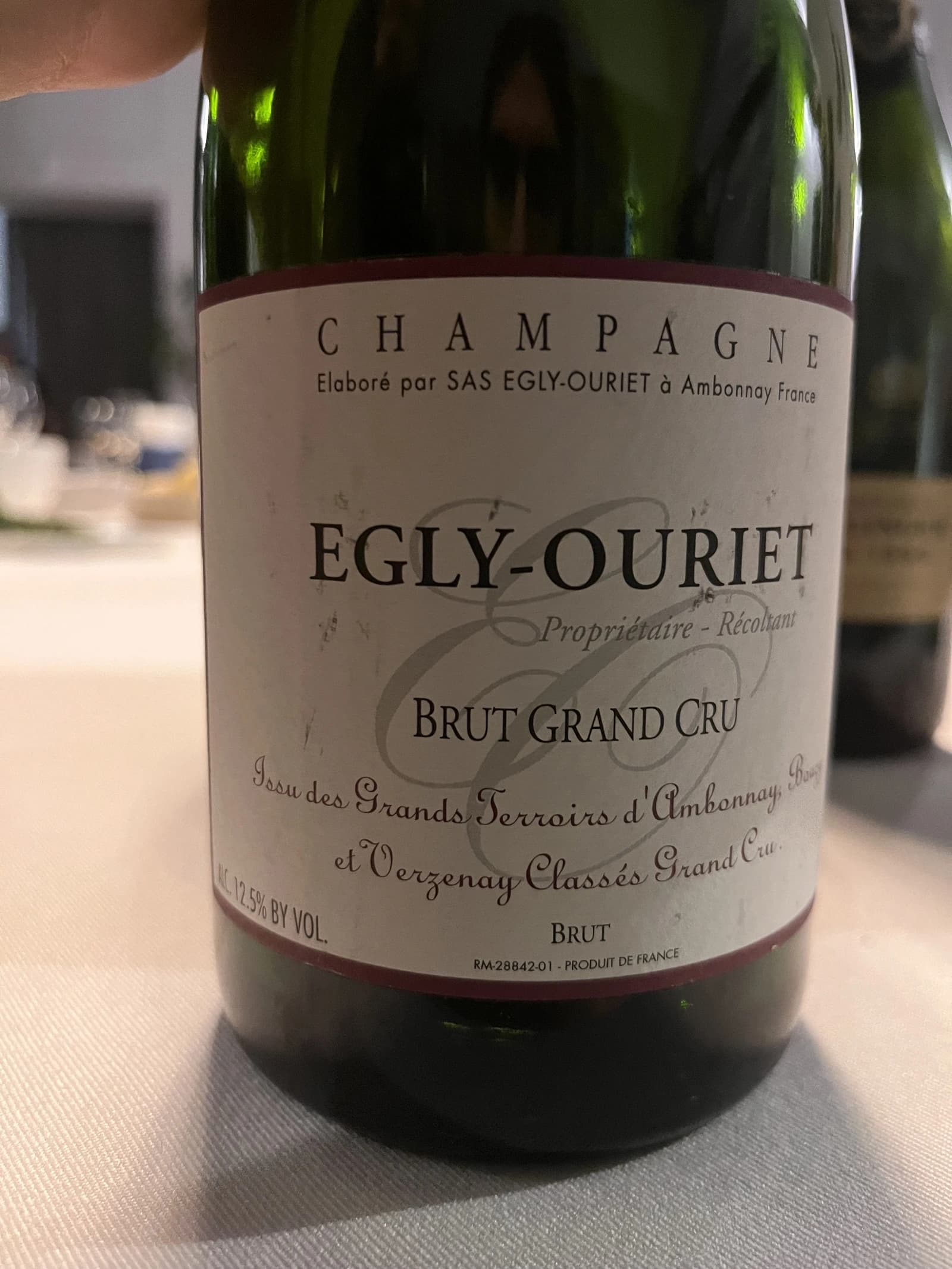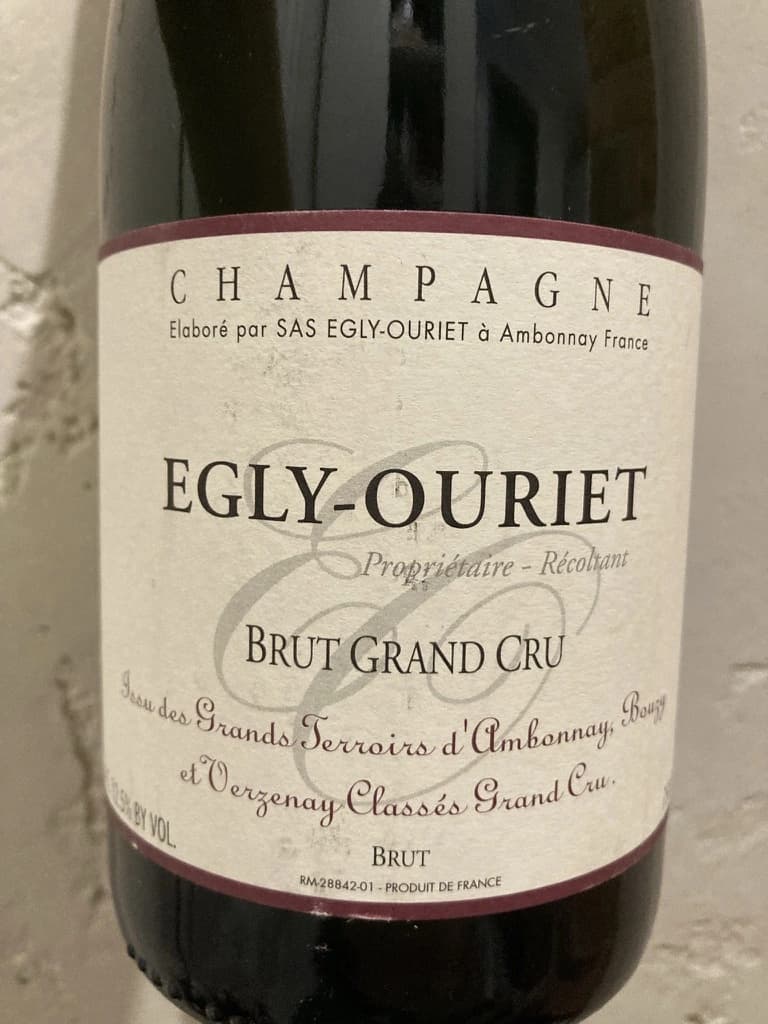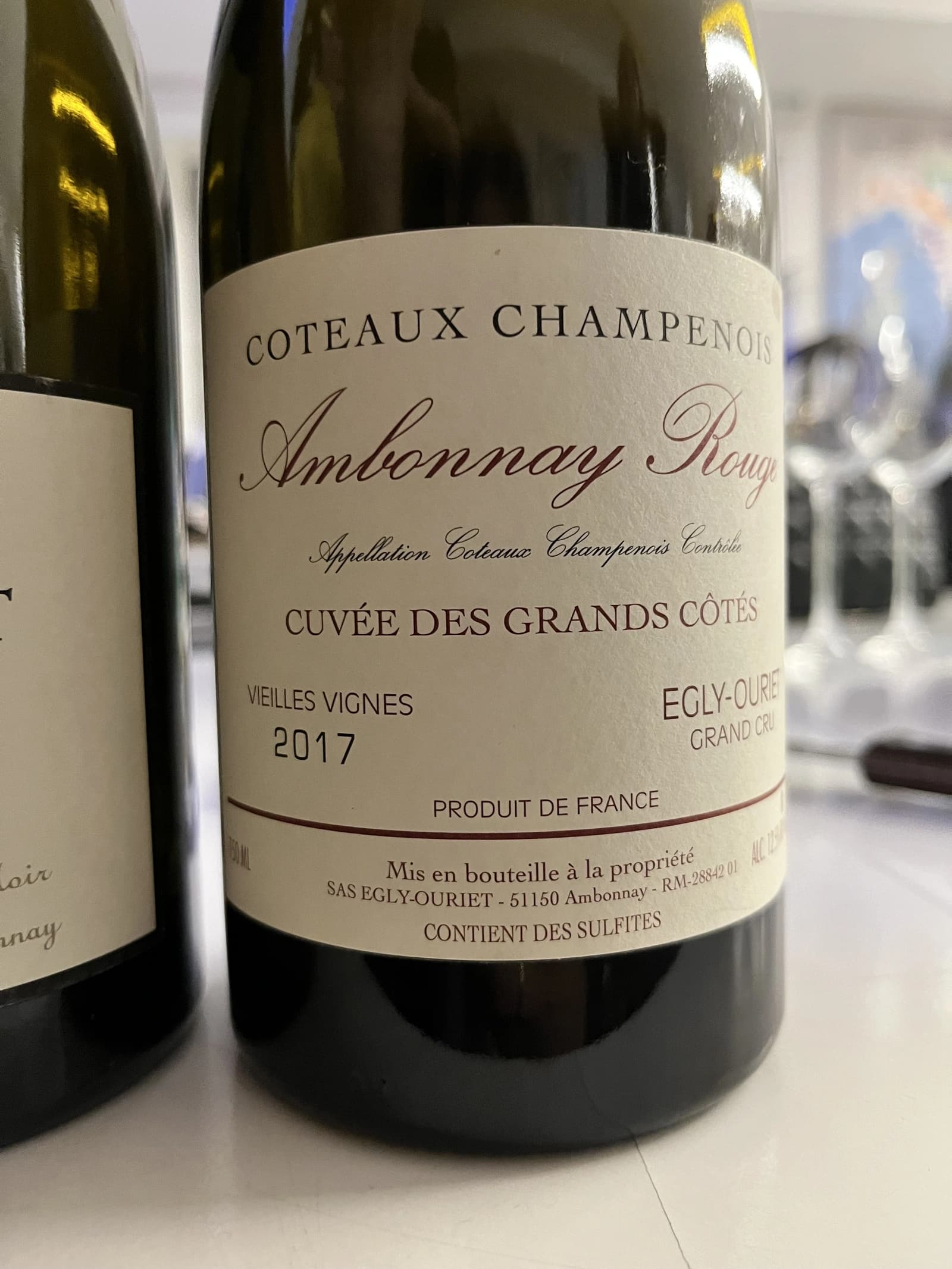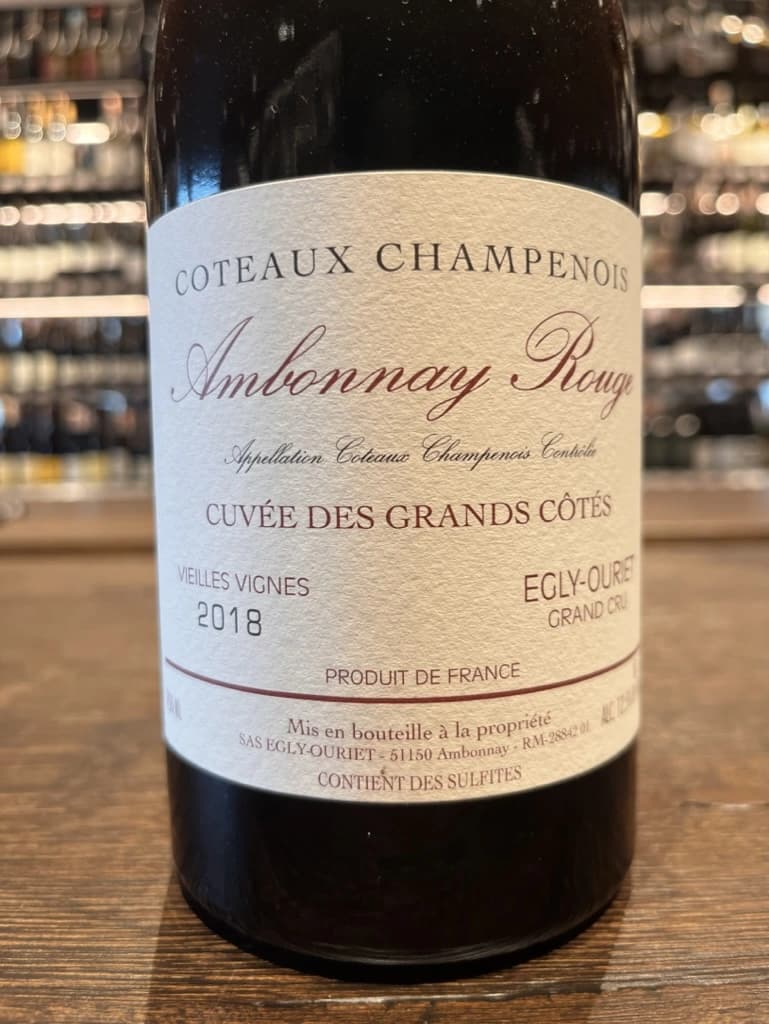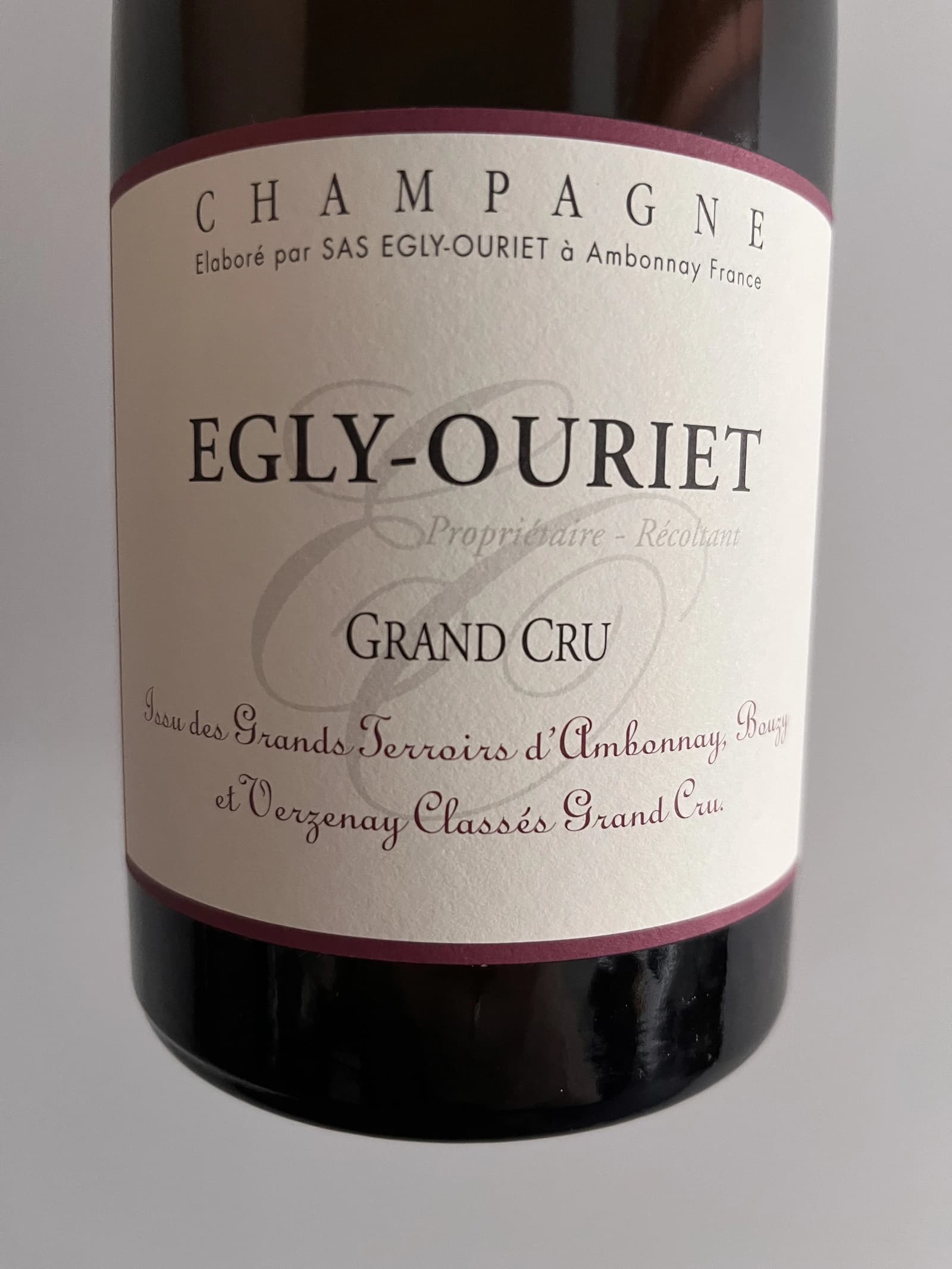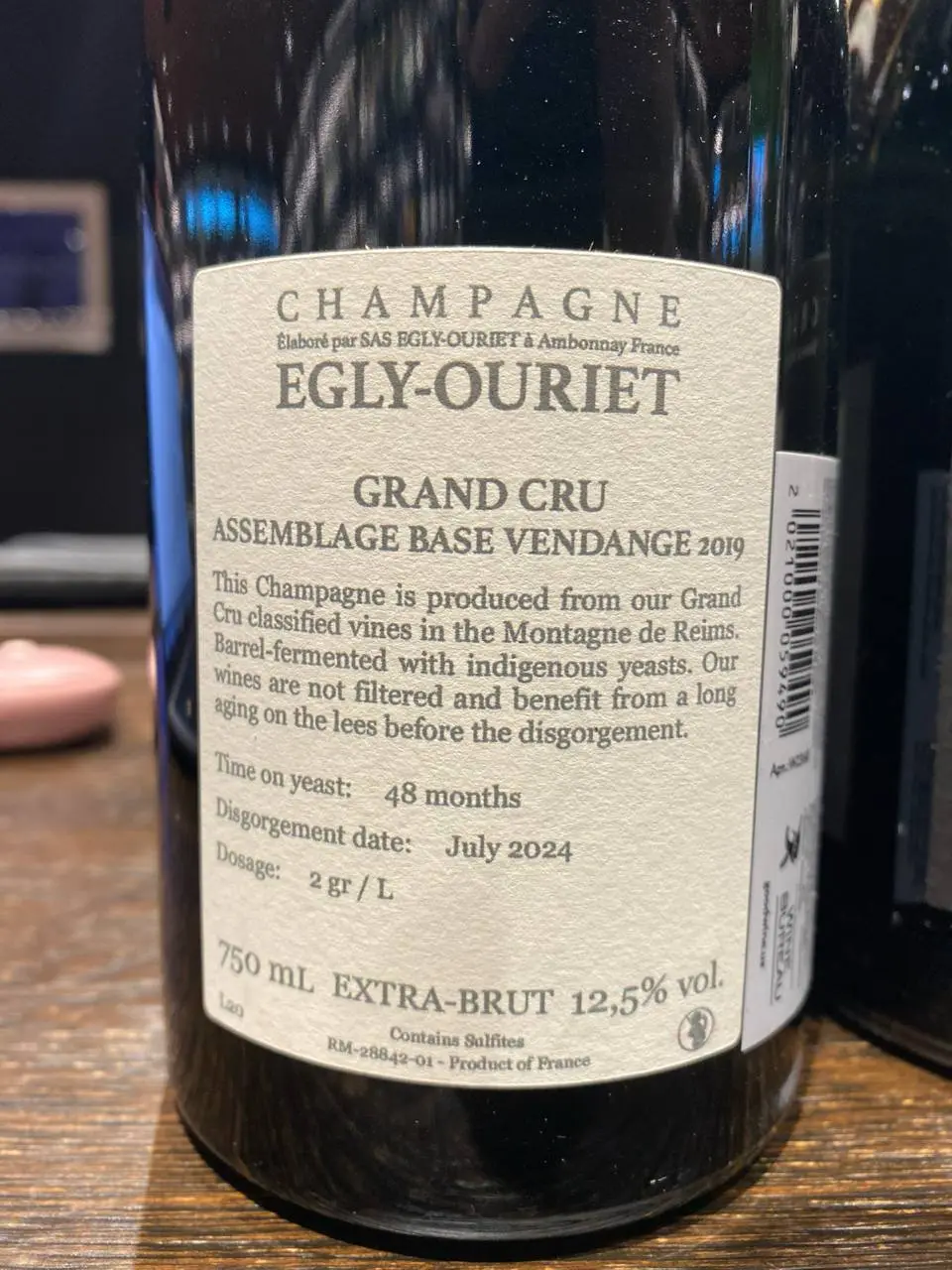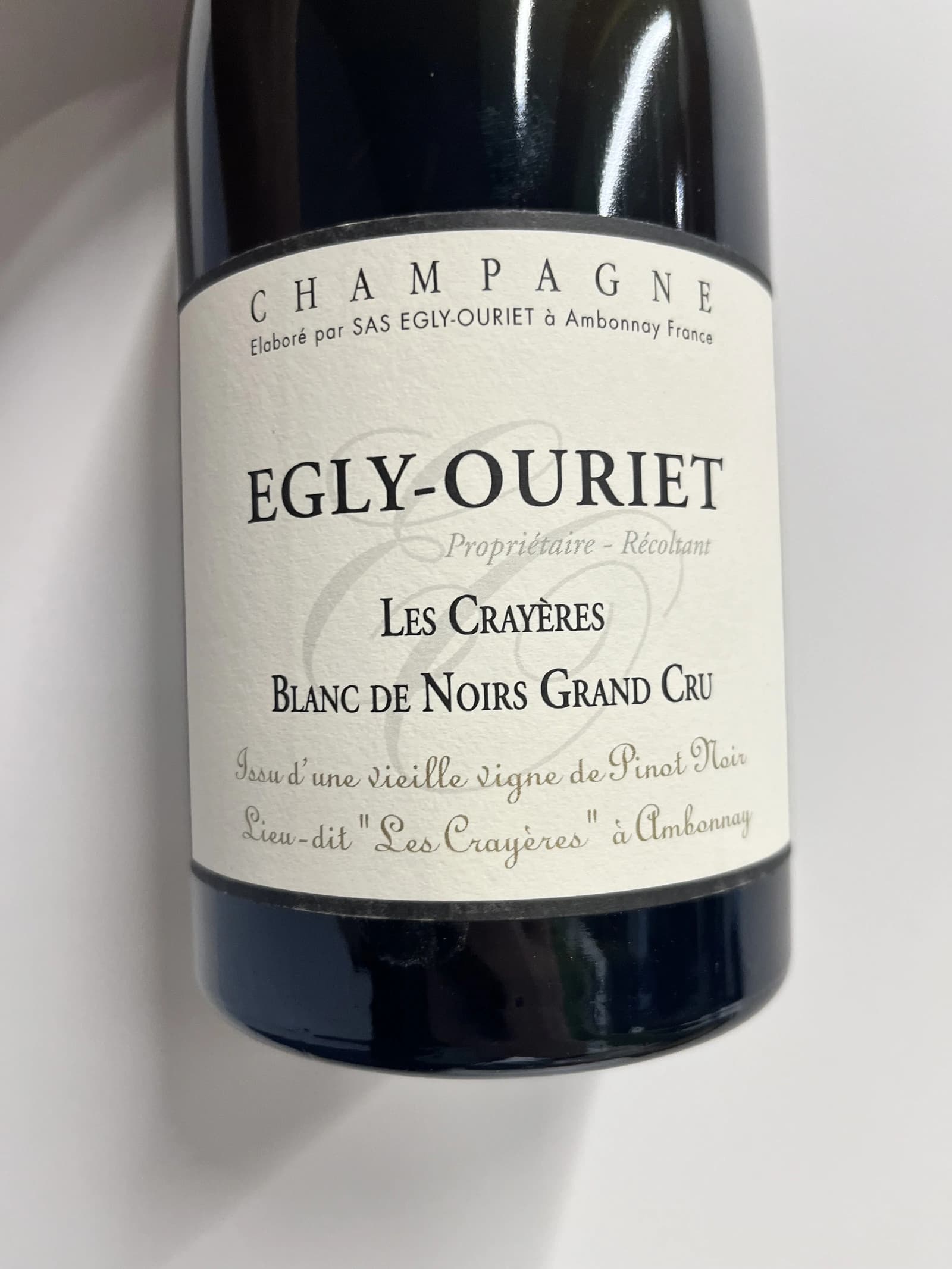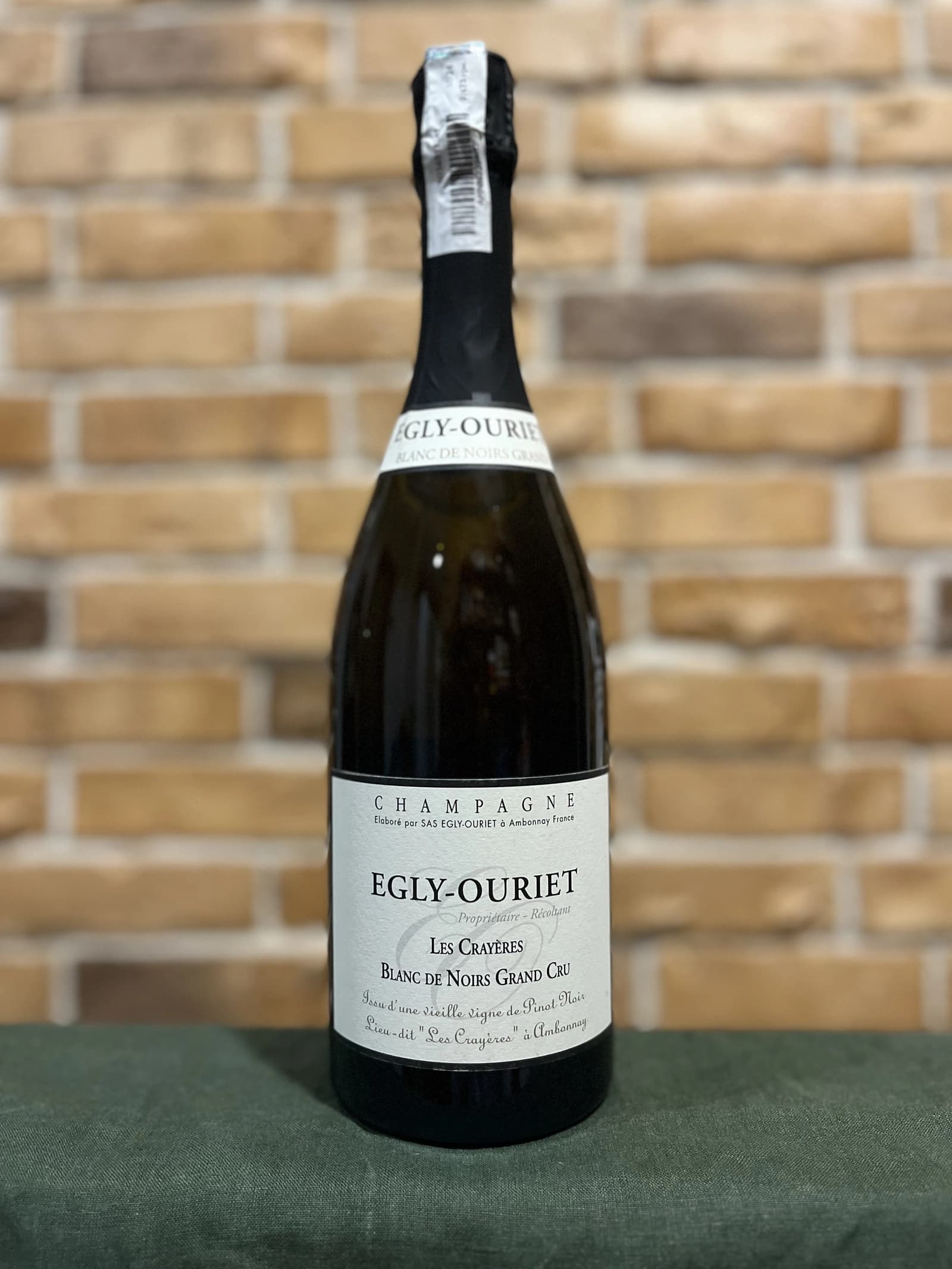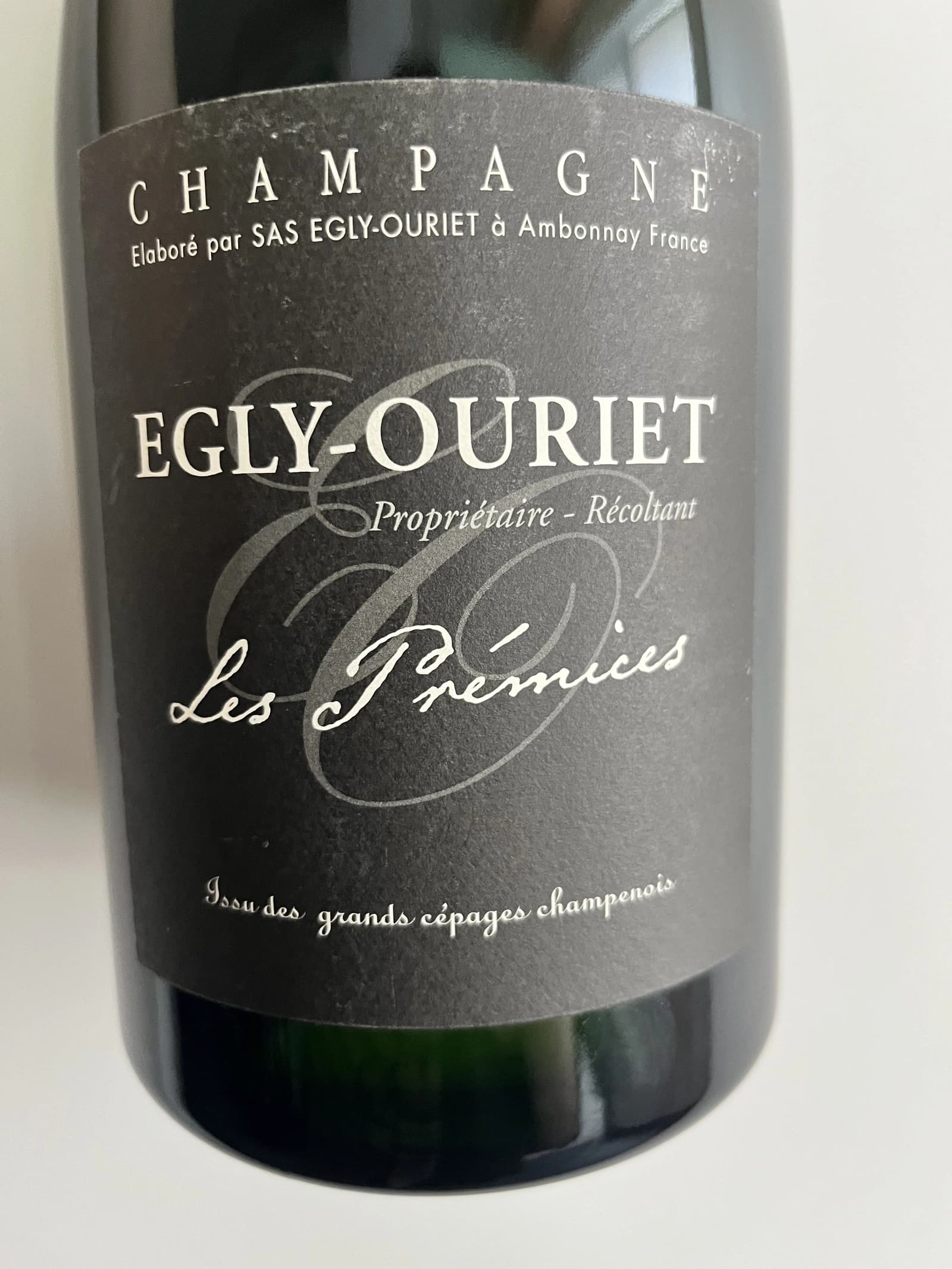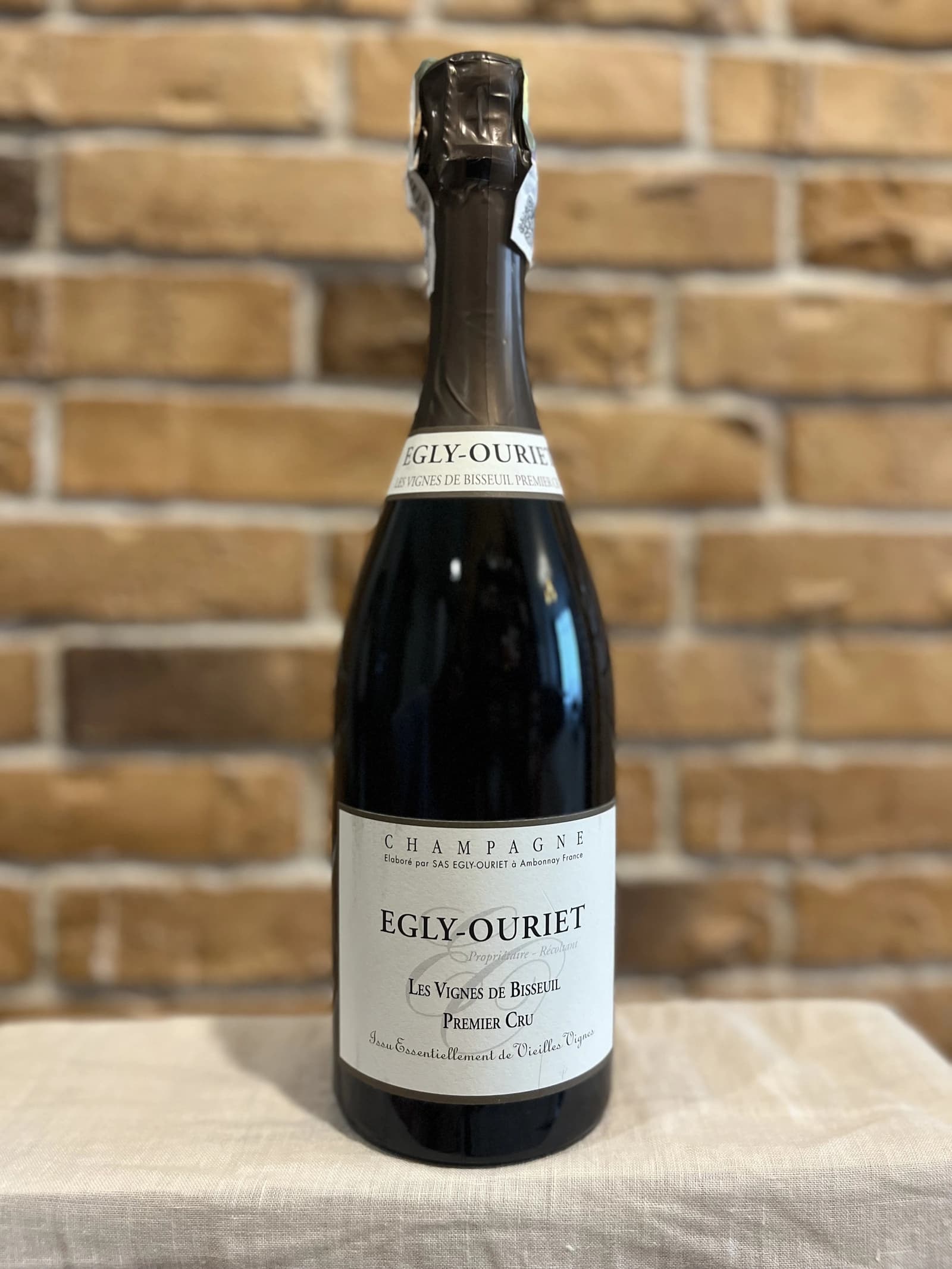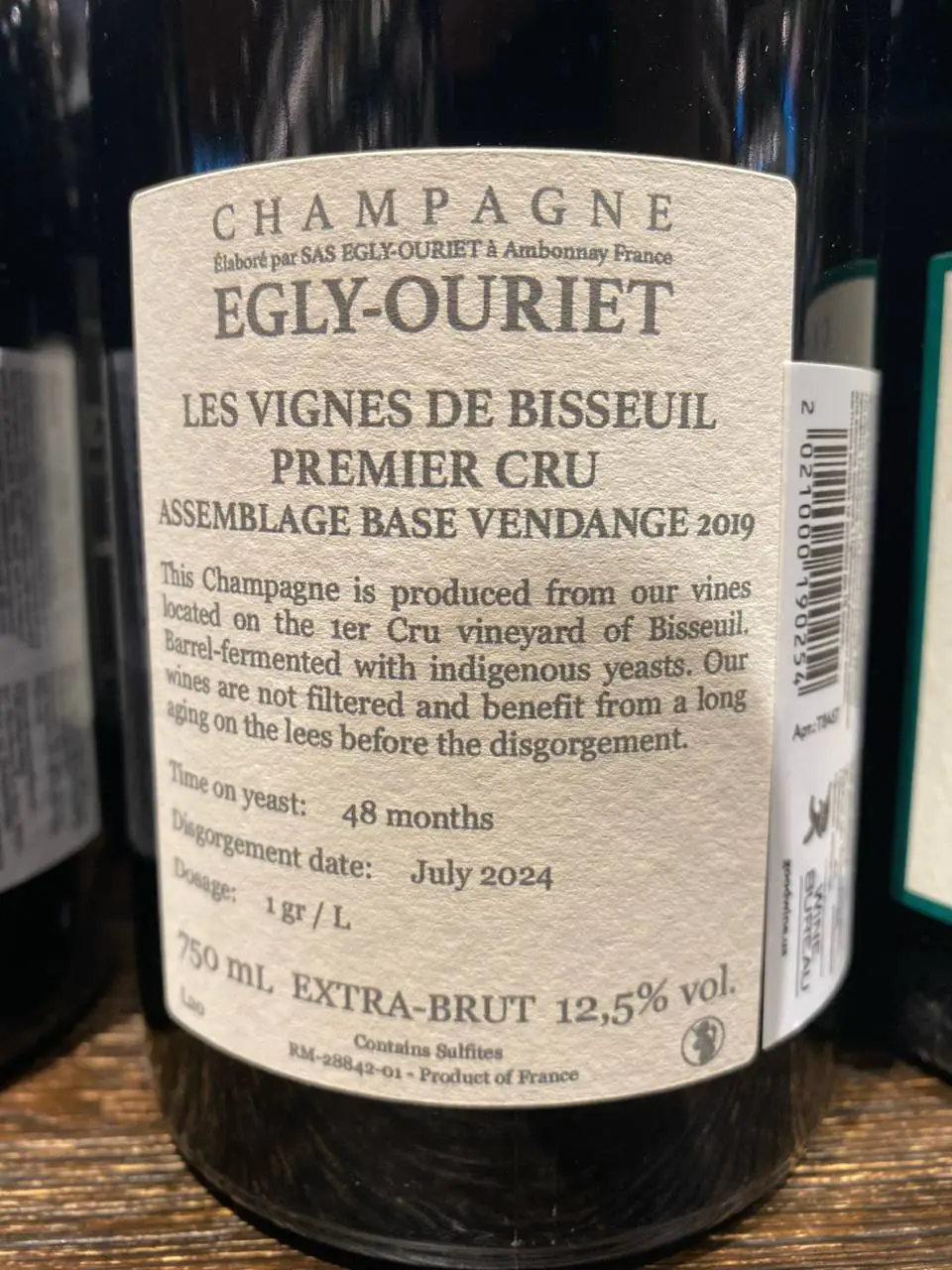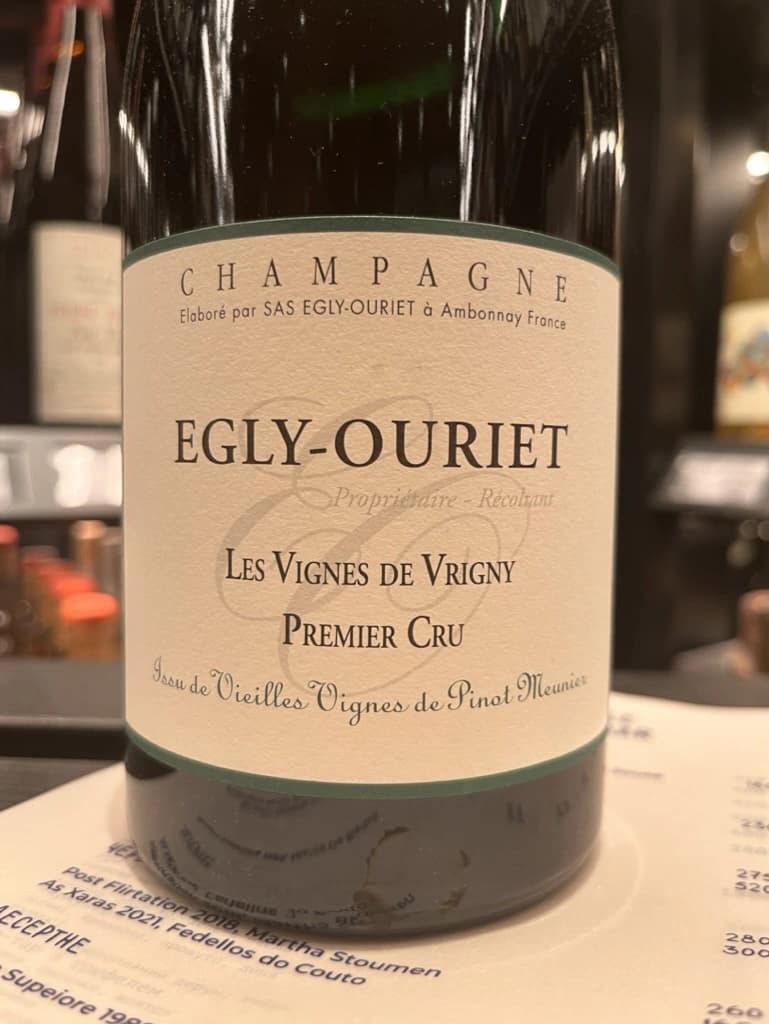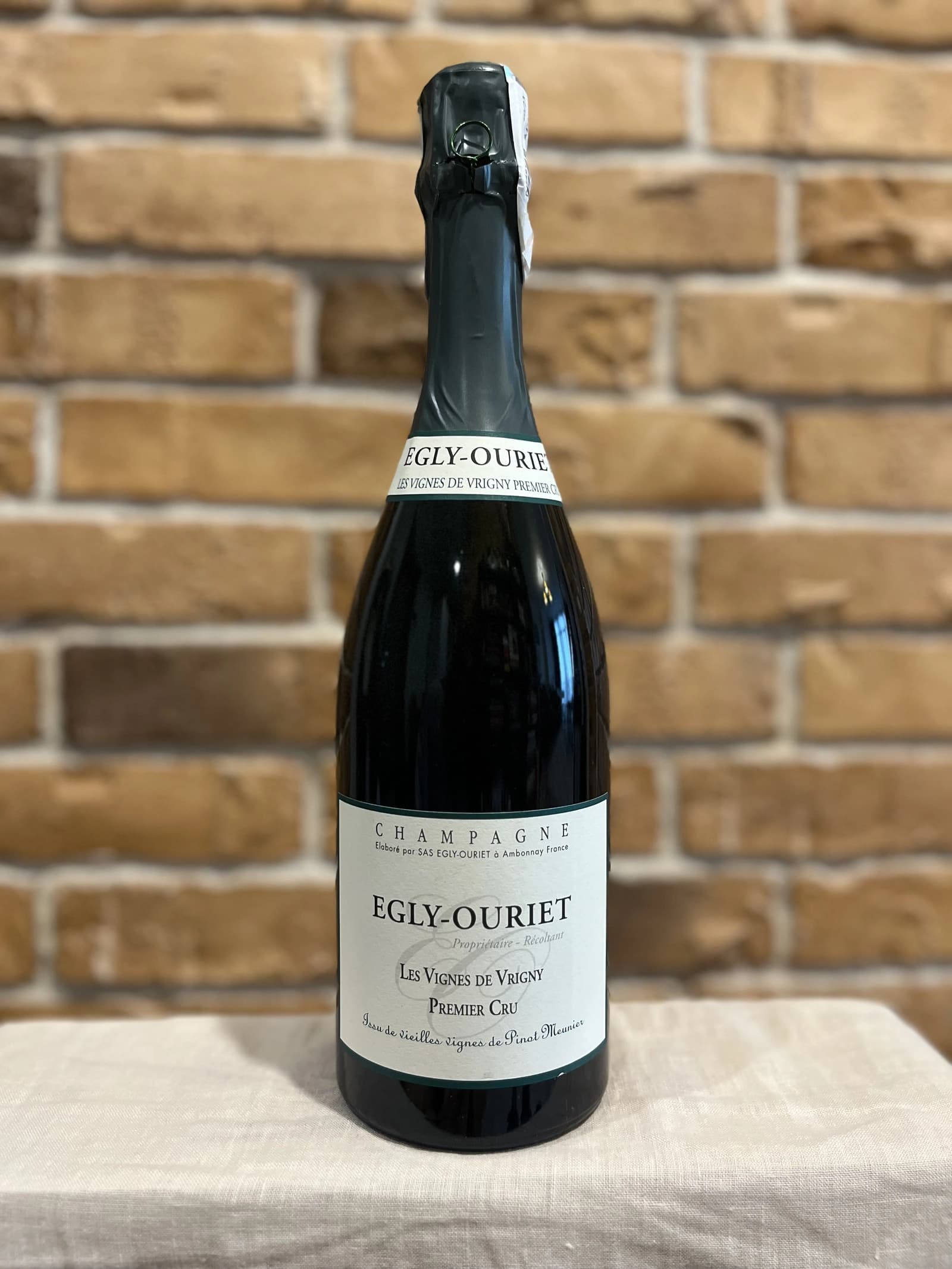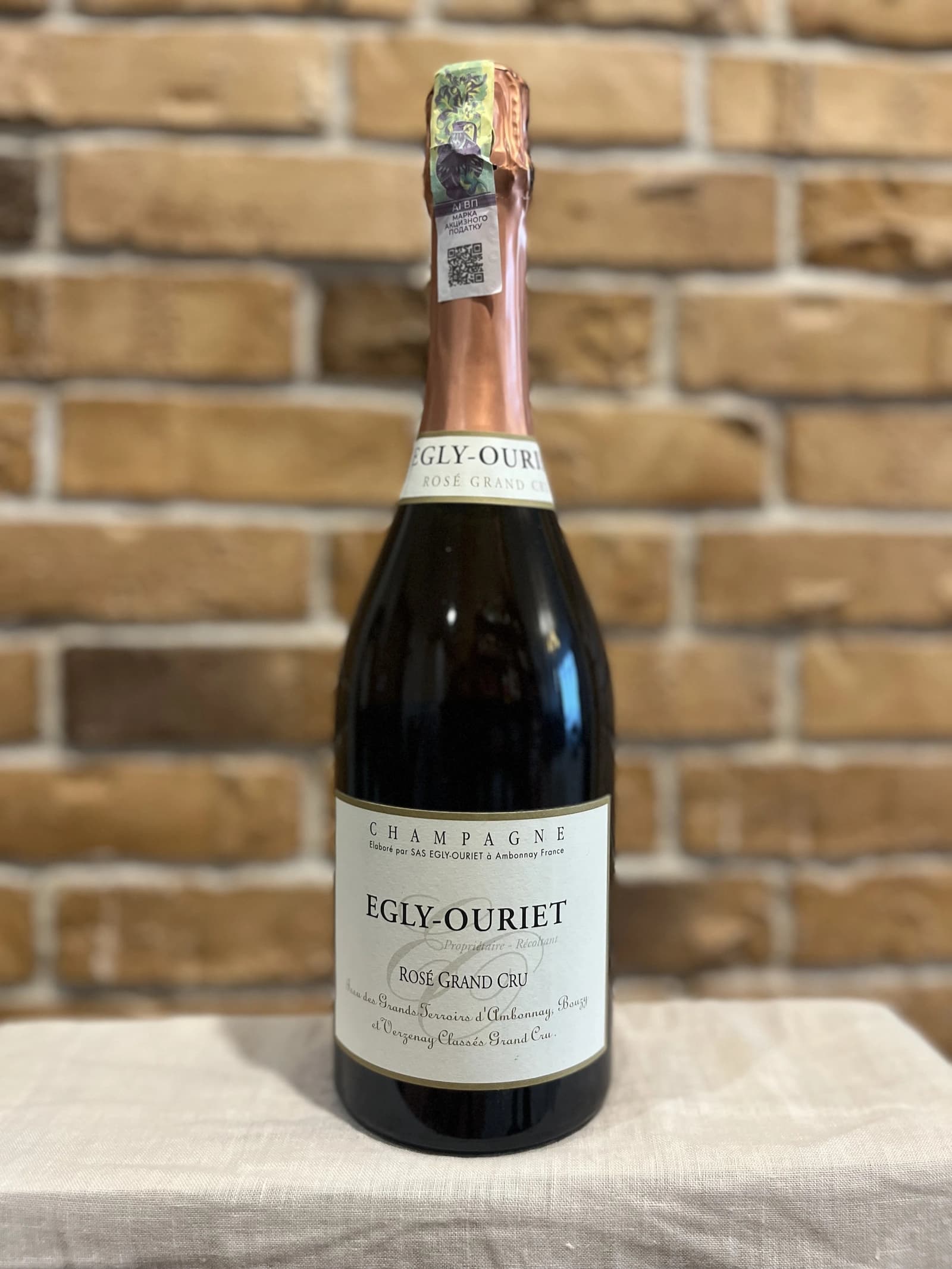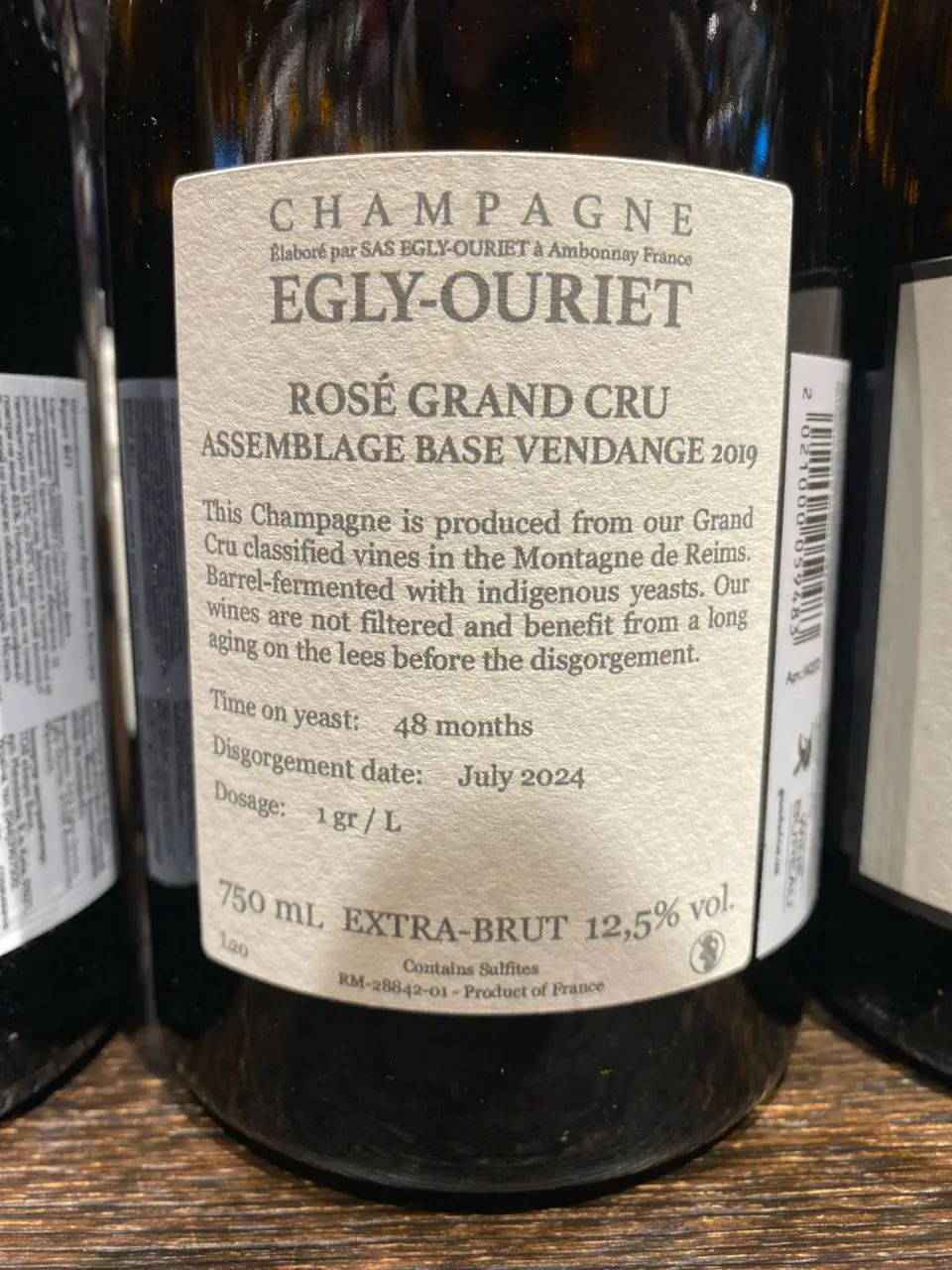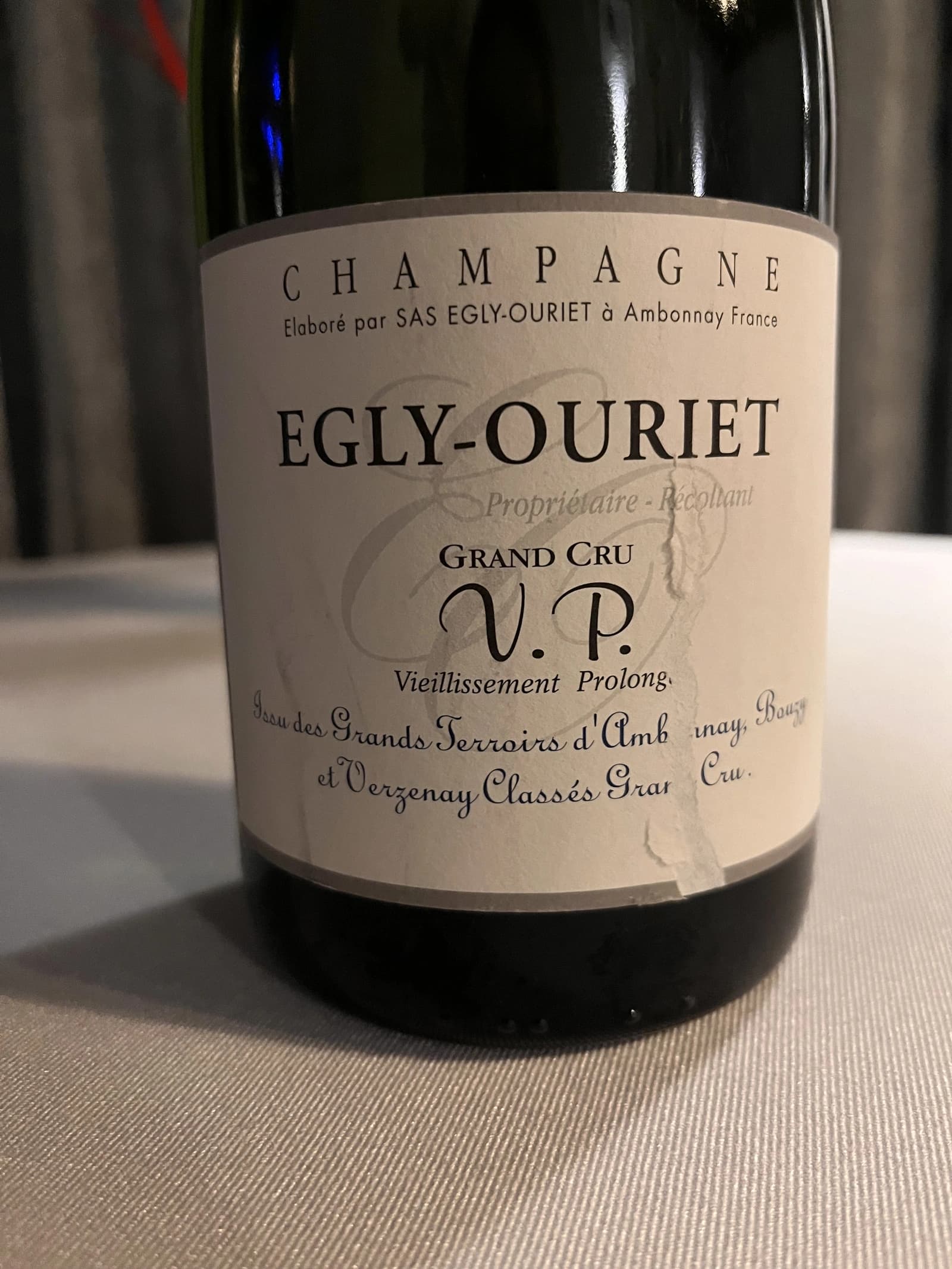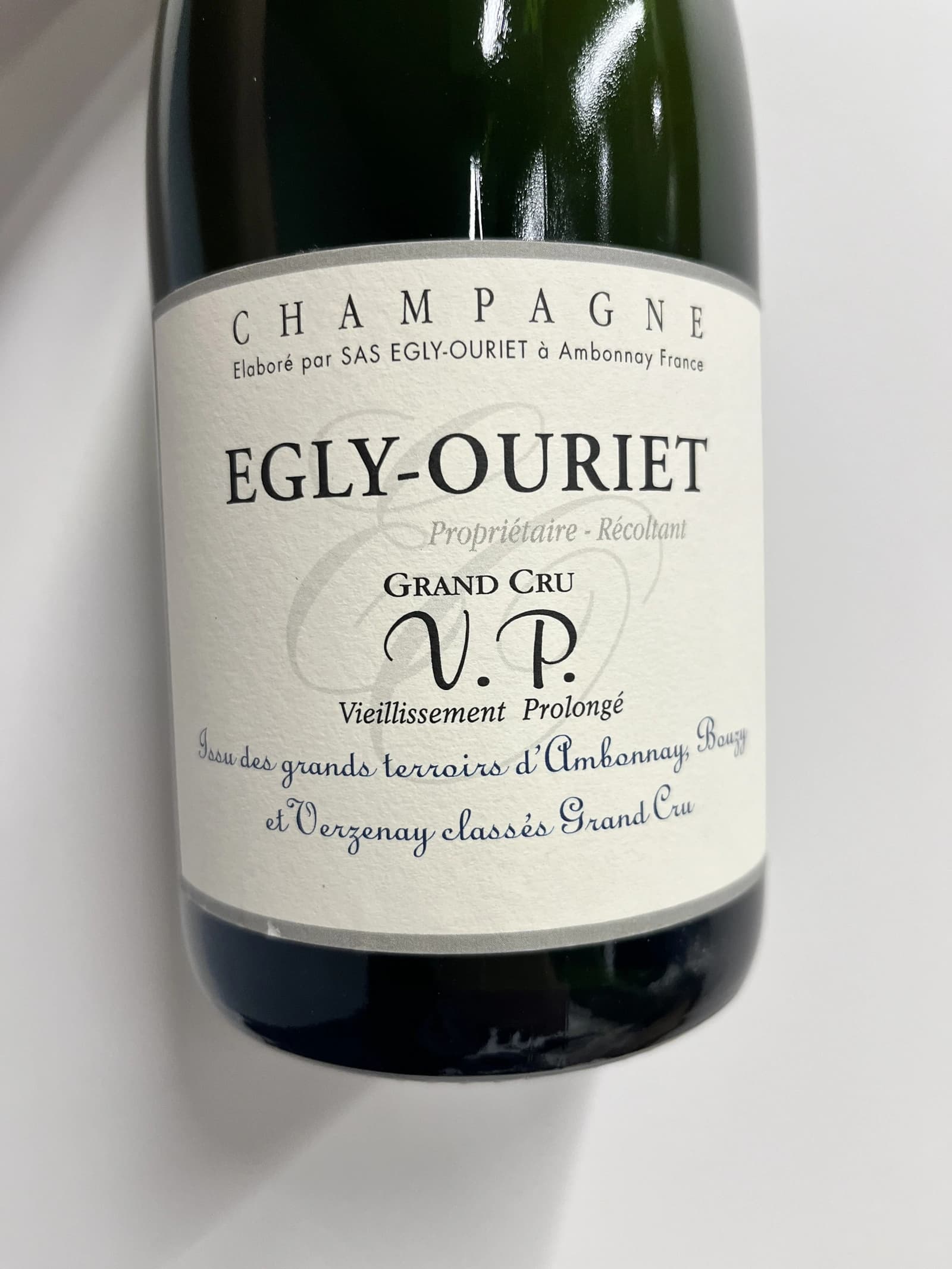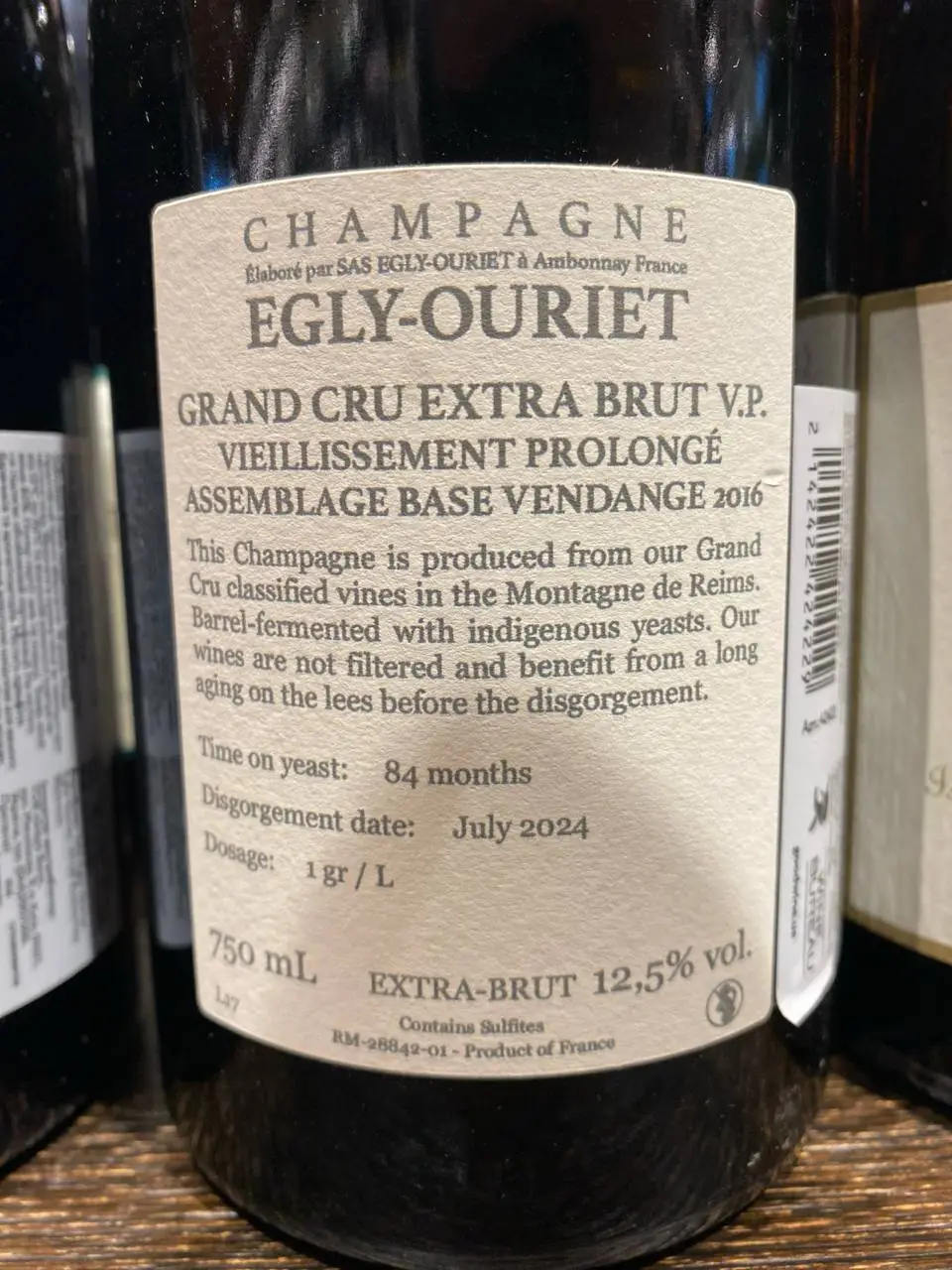Egly-Ouriet Ratafia Champenois NV
- Region
- France » Vin de France
- Type
- rose still, sweet
- Producer
- Vintage
- NV
- Grapes
- Pinot Noir
- Alcohol
- 17
- Volume
- 750 mL
- Cellar
- not available
- Find at
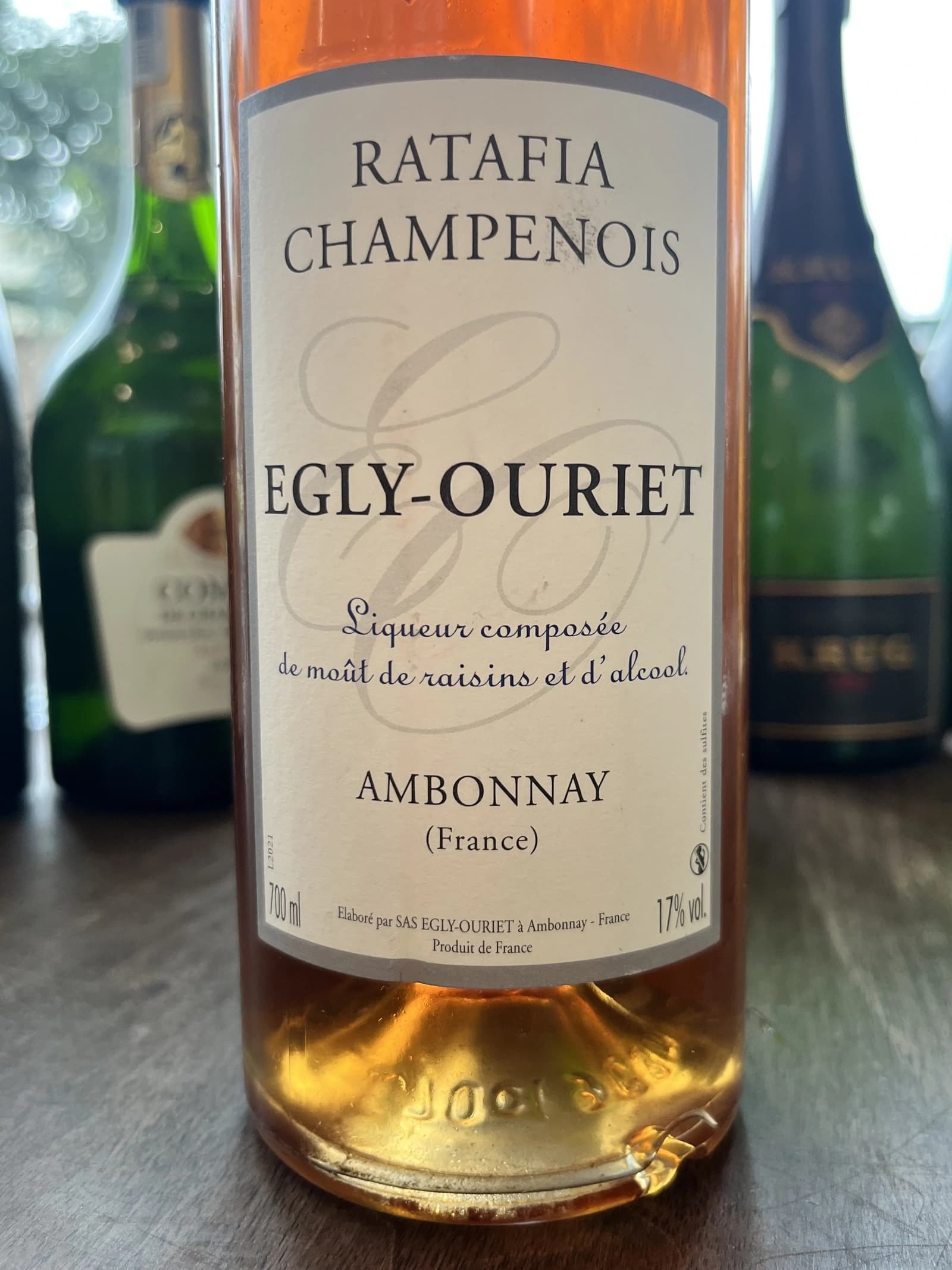
Ratings
This wine was the perfect conclusion to a delightful evening. The nose is beautifully aromatic, featuring notes of cottage cheese, caramel, honey, and an abundance of candied fruits. While some might prefer a higher acidity, the balance is undeniably impressive. When I served it blind, no one guessed its actual ABV of 17%, with most assuming it was around 13-14%. On the palate, it is round and persistent, offering distinct flavors of bitter herbs, caramel, cottage cheese, and a hint of overripe fruit. Finally, I had enough of this wine to simply savor and enjoy it thoroughly.
My initial reaction was slight disappointment due to the lack of acidity and a rather simple bouquet. But after giving it more time, I realised it's a unique wine that brings a new experience. It offers an unexpectedly large amount of fruit both on the nose and palate. Around this core are notes of caramel, cottage cheese with honey, and candied fruits. Compared to some great Madeira bottles, this Ratafia indeed lacks acidity, but it's still delicious and has an endless aftertaste with flavours of bitter herbs, cough syrup, and cottage cheese. Delicious. I want to taste it again, and luckily, I have one more bottle stashed.
About Producer
Egly-Ouriet, a name synonymous with excellence in the Champagne region, is steeped in a rich history and a relentless pursuit of quality. Led by Francis Egly, the fourth generation of the Egly family, this esteemed house in the Grand Cru village of Ambonnay is renowned for producing some of the finest Pinot Noir-based Champagnes. Since taking over from his father Michel in 1980, Francis has been instrumental in elevating these already acclaimed Champagnes to new heights through his dedication to organic vineyard practices and meticulous winemaking.
The vineyards of Egly-Ouriet, predominantly located in the Grand Cru villages of Ambonnay, Verzenay, and Bouzy, are planted with a majority of Pinot Noir and a significant proportion of Chardonnay. The average age of the vines is around 45 years, reflecting Francis's commitment to working with older vines to achieve greater depth and complexity in his wines. This commitment extends to rigorous yield control, ensuring that only the ripest grapes are harvested, a practice that sets Egly-Ouriet apart in a region known for its high yields.
Francis Egly's approach in the cellar is marked by a blend of tradition and innovation. He employs indigenous yeasts for fermentation, with a portion of the wine fermented in French oak barrels sourced from Burgundian winemaker Dominique Laurent. This use of oak, alongside extended lees ageing, imparts a distinctive texture and complexity to the Champagnes of Egly-Ouriet. Most notably, the wines are aged on the lees for a minimum of 36 months, and in some cases, over 100 months, resulting in Champagnes of extraordinary depth and structure.
Egly's philosophy in winemaking is characterized by meticulous attention to detail and an unyielding quest for quality. He is a pioneer in many respects, from bottling single-vineyard expressions to using oak barrels for fermentation, practices that were once unconventional in Champagne but have now become hallmarks of the grower Champagne movement. His approach to dosage is equally thoughtful, keeping it very low to maintain the purity and expression of the wines.
The legacy of Francis Egly is built on a foundation of quality and innovation. His Champagnes, celebrated for their vinous quality, concentration, and complexity, are not just expressions of the terroir of Ambonnay but also of his unrelenting pursuit of excellence. Egly-Ouriet Champagnes are a testament to the potential of Pinot Noir in Champagne, showcasing the power, finesse, and sublime character that can be achieved through dedicated viticulture and skilful winemaking. Francis Egly's influence extends beyond his own estate, contributing significantly to the evolution and elevation of Champagne as a region capable of producing wines that stand shoulder-to-shoulder with the world's best.
Related Wines
